3-Phenoxy-1-propanol
Modify Date: 2025-08-23 17:38:13
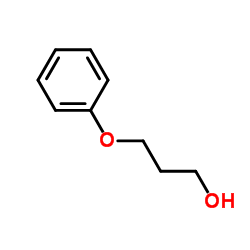
3-Phenoxy-1-propanol structure
|
Common Name | 3-Phenoxy-1-propanol | ||
|---|---|---|---|---|
| CAS Number | 6180-61-6 | Molecular Weight | 152.190 | |
| Density | 1.1±0.1 g/cm3 | Boiling Point | 250.2±13.0 °C at 760 mmHg | |
| Molecular Formula | C9H12O2 | Melting Point | N/A | |
| MSDS | N/A | Flash Point | 105.1±14.1 °C | |
| Name | 3-Phenoxy-1-propanol |
|---|---|
| Synonym | More Synonyms |
| Density | 1.1±0.1 g/cm3 |
|---|---|
| Boiling Point | 250.2±13.0 °C at 760 mmHg |
| Molecular Formula | C9H12O2 |
| Molecular Weight | 152.190 |
| Flash Point | 105.1±14.1 °C |
| Exact Mass | 152.083725 |
| PSA | 29.46000 |
| LogP | 1.93 |
| Vapour Pressure | 0.0±0.5 mmHg at 25°C |
| Index of Refraction | 1.520 |
| InChIKey | AWVDYRFLCAZENH-UHFFFAOYSA-N |
| SMILES | OCCCOc1ccccc1 |
Synonym:1-Phenoxypropan-2-ol;propylenephenoxytho Section 2 - COMPOSITION, INFORMATION ON INGREDIENTS
Risk Phrases: None Listed. Section 3 - HAZARDS IDENTIFICATION EMERGENCY OVERVIEW
The toxicological properties of this material have not been fully investigated. Potential Health Effects Eye: May cause eye irritation. Skin: May cause skin irritation. Ingestion: May cause irritation of the digestive tract. The toxicological properties of this substance have not been fully investigated. Inhalation: May cause respiratory tract irritation. The toxicological properties of this substance have not been fully investigated. Chronic: None Section 4 - FIRST AID MEASURES Eyes: Flush eyes with plenty of water for at least 15 minutes, occasionally lifting the upper and lower eyelids. Get medical aid. Skin: Get medical aid if irritation develops or persists. Flush skin with plenty of soap and water. Ingestion: If victim is conscious and alert, give 2-4 cupfuls of milk or water. Never give anything by mouth to an unconscious person. Get medical aid. Inhalation: Remove from exposure and move to fresh air immediately. Get medical aid if cough or other symptoms appear. Notes to Physician: Section 5 - FIRE FIGHTING MEASURES General Information: As in any fire, wear a self-contained breathing apparatus in pressure-demand, MSHA/NIOSH (approved or equivalent), and full protective gear. Extinguishing Media: Use water spray, dry chemical, carbon dioxide, or chemical foam. Section 6 - ACCIDENTAL RELEASE MEASURES General Information: Use proper personal protective equipment as indicated in Section 8. Spills/Leaks: Absorb spill with inert material (e.g. vermiculite, sand or earth), then place in suitable container. Section 7 - HANDLING and STORAGE Handling: Wash thoroughly after handling. Avoid contact with eyes, skin, and clothing. Keep container tightly closed. Avoid ingestion and inhalation. Use with adequate ventilation. Storage: Store in a tightly closed container. Store in a cool, dry, well-ventilated area away from incompatible substances. Section 8 - EXPOSURE CONTROLS, PERSONAL PROTECTION Engineering Controls: Use adequate ventilation to keep airborne concentrations low. Exposure Limits CAS# 6180-61-6: Personal Protective Equipment Eyes: Wear appropriate protective eyeglasses or chemical safety goggles as described by OSHA's eye and face protection regulations in 29 CFR 1910.133 or European Standard EN166. Skin: Wear appropriate protective gloves to prevent skin exposure. Clothing: Wear appropriate protective clothing to prevent skin exposure. Respirators: Follow the OSHA respirator regulations found in 29 CFR 1910.134 or European Standard EN 149. Use a NIOSH/MSHA or European Standard EN 149 approved respirator if exposure limits are exceeded or if irritation or other symptoms are experienced. Section 9 - PHYSICAL AND CHEMICAL PROPERTIES Physical State: Liquid Color: Clear Odor: Not available. pH: Not available. Vapor Pressure: Not available. Viscosity: Not available. Boiling Point: 83 - 85 deg C @ .05mm Hg Freezing/Melting Point: Not available. Autoignition Temperature: Not available. Flash Point: > 112 deg C (> 233.60 deg F) Explosion Limits, lower: Not available. Explosion Limits, upper: Not available. Decomposition Temperature: Solubility in water: Specific Gravity/Density: 1.0450g/cm3 Molecular Formula: C9H12O2 Molecular Weight: 152.19 Section 10 - STABILITY AND REACTIVITY Chemical Stability: Stable under normal temperatures and pressures. Stability unknown. Conditions to Avoid: Incompatible materials. Incompatibilities with Other Materials: Strong oxidizing agents Hazardous Decomposition Products: Carbon monoxide, carbon dioxide. Hazardous Polymerization: Will not occur. Section 11 - TOXICOLOGICAL INFORMATION RTECS#: CAS# 6180-61-6 unlisted. LD50/LC50: Not available. Carcinogenicity: 3-henoxy-1-propanol - Not listed by ACGIH, IARC, or NTP. Section 12 - ECOLOGICAL INFORMATION Section 13 - DISPOSAL CONSIDERATIONS Dispose of in a manner consistent with federal, state, and local regulations. Section 14 - TRANSPORT INFORMATION IATA Not regulated as a hazardous material. IMO Not regulated as a hazardous material. RID/ADR Not regulated as a hazardous material. Section 15 - REGULATORY INFORMATION European/International Regulations European Labeling in Accordance with EC Directives Hazard Symbols: Not available. Risk Phrases: Safety Phrases: S 24/25 Avoid contact with skin and eyes. S 37/39 Wear suitable gloves and eye/face protection. WGK (Water Danger/Protection) CAS# 6180-61-6: No information available. Canada None of the chemicals in this product are listed on the DSL/NDSL list. CAS# 6180-61-6 is not listed on Canada's Ingredient Disclosure List. US FEDERAL TSCA CAS# 6180-61-6 is not listed on the TSCA inventory. It is for research and development use only. SECTION 16 - ADDITIONAL INFORMATION N/A |
| Hazard Codes | Xn:Harmful; |
|---|---|
| Risk Phrases | R22;R36/37/38 |
| Safety Phrases | S24/25-S37/39-S26 |
| HS Code | 2909499000 |
| Precursor 10 | |
|---|---|
| DownStream 10 | |
| HS Code | 2909499000 |
|---|---|
| Summary | 2909499000. ether-alcohols and their halogenated, sulphonated, nitrated or nitrosated derivatives. VAT:17.0%. Tax rebate rate:9.0%. . MFN tariff:5.5%. General tariff:30.0% |
| 3-Phenoxy-1-propanol |
| Propanediol phenyl ether |
| 3-phenyloxy-1-propanol |
| EINECS 228-228-8 |
| MFCD00039549 |
| 3-phenyloxypropanol |
| 3-phenoxy-l-propanol |
| epoxy-3-phenoxy-propane |
| 3-phenoxy-propanol |
| 1-Propanol, 3-phenoxy- |
| 3-phenoxypropan-1-ol |
| 1,3-Propylene glycol phenyl ether |
| 3-benzyloxypropanol |
 CAS#:627-30-5
CAS#:627-30-5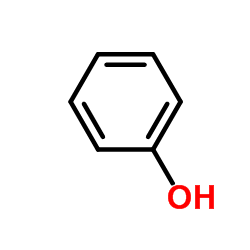 CAS#:108-95-2
CAS#:108-95-2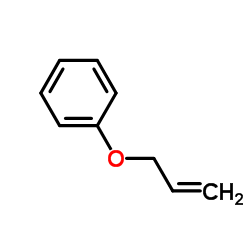 CAS#:1746-13-0
CAS#:1746-13-0![1-[3-(4-iodo-3-methoxy-3-methylbutoxy)propoxy]benzene Structure](https://image.chemsrc.com/caspic/290/1141498-11-4.png) CAS#:1141498-11-4
CAS#:1141498-11-4 CAS#:627-18-9
CAS#:627-18-9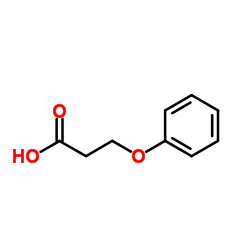 CAS#:7170-38-9
CAS#:7170-38-9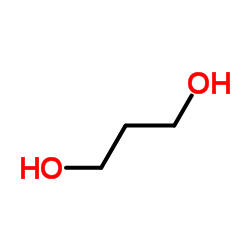 CAS#:504-63-2
CAS#:504-63-2 CAS#:30263-10-6
CAS#:30263-10-6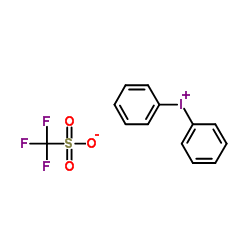 CAS#:66003-76-7
CAS#:66003-76-7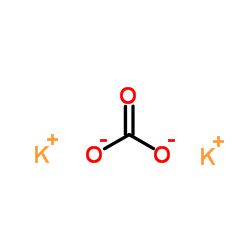 CAS#:584-08-7
CAS#:584-08-7 CAS#:491-37-2
CAS#:491-37-2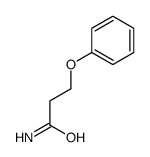 CAS#:22409-37-6
CAS#:22409-37-6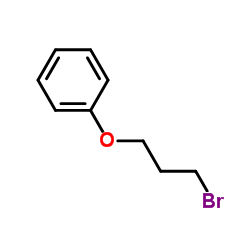 CAS#:588-63-6
CAS#:588-63-6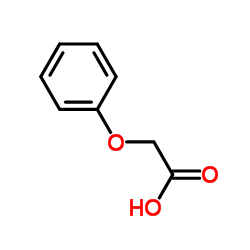 CAS#:122-59-8
CAS#:122-59-8 CAS#:3384-04-1
CAS#:3384-04-1 CAS#:1776-09-6
CAS#:1776-09-6 CAS#:22409-91-2
CAS#:22409-91-2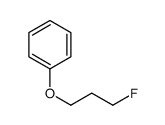 CAS#:70659-93-7
CAS#:70659-93-7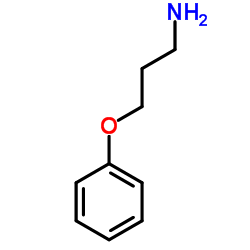 CAS#:7617-76-7
CAS#:7617-76-7
